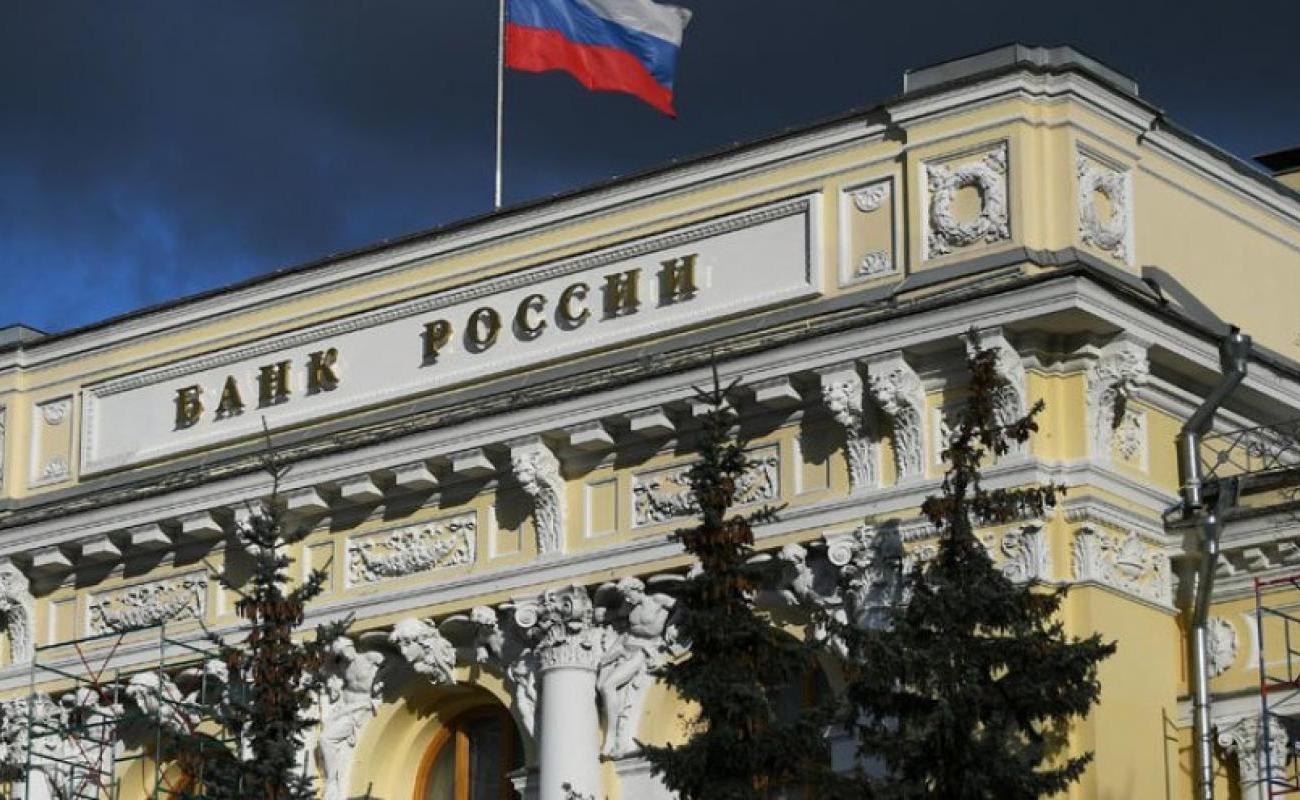House of cards of Russian banks

Sanctions, war shock and the desire of the Central Bank of the Russian Federation to hide the problems that arose, led to the fact that behind the external well-being of the financial system of the Russian Federation, a series of risks of catastrophic proportions began to form.
Western sanctions have led to non-payment by Russian banks in the European Union. The Austrian branch of Sberbank of the Russian Federation, Sberbank Europe AG, was the first to announce non-compliance. As early as March 3, the Austrian authorities introduced a temporary administration in this bank and began paying guarantees guaranteed to Europeans of up to 100,000 euros. Also in early March, the Swiss Financial Markets Authority announced that safeguards had been taken against Sberbank (Switzerland) AG.
In the second decade of March, the British media announced the reduction of almost all employees in the VTB Bank branch in London and the relocation of VTB's business to Frankfurt. Meanwhile, on April 1, it became known about the actual bankruptcy of Sberbank CIB (UK) Ltd in London. The work of a dozen other branches and companies of Russian state-owned banks abroad remains in question, as does the work of VTB in Germany and Gazprombank in Cyprus.
Meanwhile, the most insidious factor is the impact of interest rate risk on the entire banking system of the Russian Federation. After all, there are many speculators working on the Russian market who like to make money on it. And trading with clients on credit in the bond market is often accompanied by the construction of repo pyramids within their or even clients' portfolios [repo transactions - short-term loan secured by securities].
The first victim, Univer-Capital Investment Bank, filed for bankruptcy in late March. Gazenergobank, Centrocredit, Bank Derzhava, RESO-Credit, Metcombank, Alefbank and several other credit institutions also played with repo transactions. In the absence of capital and liquidity, the fate of "Univer-Capital" could soon befall them.
Another important point: about 40 percent of the total volume of loans in Russia is issued by banks at a variable interest rate, which in most cases is linked to the
Central Bank rate. After rising from 9.5 to 20 percent, those who paid 15 percent of the loan will now pay 30 percent.
The danger lies in the mechanism of converting interest rate risk into credit. That is, in six months, up to 40 percent of loans can fall into the category of problem loans.
The "good authorities" knew about the problem and offered to extend the increase in the interest rate on the "market" to six months, especially by regulating the mortgage segment. But events did not go according to plan. Instead of compensating for the increased rates in the budget, the legislators left in the budget only preferential programs for the population and a little for important sectors of the economy. The rest of the interest burden is transferred to the banking sector. This is the path to a slow but sure collapse.
Russian bankers did not like the fact that banks have to pay interest rate risk because they started writing outraged letters to the government. One of these "secret letters" fell into the hands of journalists. In it, Herman Gref (head of Sberbank of the Russian Federation) and Andrei Kostin (head of VTB) estimated the potential losses of Sberbank and VTB from participating in state support measures at almost 600 billion rubles. Moreover, according to the Bank of Russia, the loss of the banking system in 2022 will be from 3.5 to 5.8 trillion rubles, excluding the negative revaluation of securities in the amount of about two trillion rubles.
The total potential losses of the largest Russian state-owned banks could reach about 379 billion rubles for Sberbank and about 217 billion rubles for VTB.
Russian authorities do not hide that they expect a banking crisis. The State Duma Property Committee has approved a law allowing the Ministry of Finance to purchase preferred shares of credit institutions at the expense of the National Welfare Fund (FNB) based on certain government decisions. This will not even require the consent of the Central Bank and the Federal Antimonopoly Service (FAS).
The Russian government has already used the funds of the National Fund for the recapitalization of banks in the crisis of 2008-2009, issuing them subordinated bonds (boards) through the WEB for 404 billion rubles. In 2014, following the
introduction of sectoral sanctions by Western countries, state-owned banks turned these subcommittees into preferred shares. Thus, VTB received 214 billion rubles in tier 1 capital, Gazprombank - 39.95 billion rubles, RSHB - 25 billion rubles.
The CBR itself has been repeatedly revealed to be helping banks and other residents of Russia avoid sanctions and reveal information that could cause crises in the banking sector.
First, the Central Bank of the Russian Federation allowed the owners of credit institutions not to publish data on the structure of their assets, but at the same time obliged them to submit them to the Central Bank.
Second, the Central Bank of the Russian Federation has postponed the publication of reports of credit institutions, which will allow the real state of affairs in the banking sector to be hidden from the public for some time.
Immersed in the jungles of the stagnant Russian financial sector, I increasingly wonder, "Why didn't the Russians working in the Russian financial sector satisfy their authorities?" Perhaps the Russian authorities do not like Ukraine, where citizens live better than 95 percent of the population of the territory of the Russian Federation, and 91 percent of the population wants to join the EU and is proud to be Ukrainian. But then why don't the Russian authorities love their people so much, condemning them to poverty for the sake of questionable territorial benefits or oppression of another nationality?
